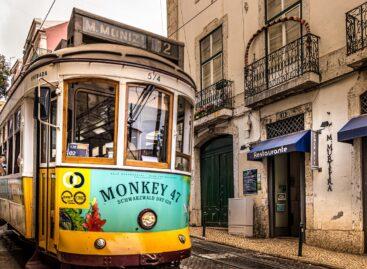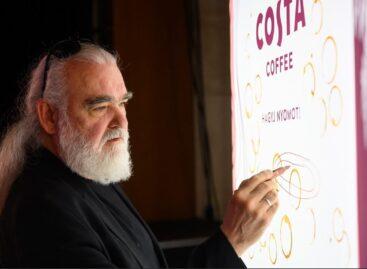Magazine: A new era in everyday shopping
Data measured by Nielsen reveals that the Hungarian consumer confidence index has never been this high since 2009, there is a record-low unemployment level and the GDP has increased. Sales in the FMCG sector have kept growing in the last 14 months. In Q2 2017 the consumer confidence index was at 70 points (the European average was 85), having grown by 6 points. 31 percent of Hungarians said their personal financial situation was good or excellent – 7 percentage points more than in Q4 2016. 27 percent of Hungarians were optimistic about their job prospects – 9 percentage points more than in the base period. Willingness to buy increased by 5 percentage points to 24 percent. While back in 2012 50 percent of Hungarians said they didn’t have any savings, in 2017 only one third reported this.

Kateryna Edelhstein
managing director
Nielsen
FMCG value sales grew by 6.4 percent in Q2 2017 if compared with Q2 2016. Volume sales increased by 3.6 percent from one quarter to another (at European level this growth was 1.7 percent). Hungarian FMCG prices elevated by 2.8 percent – in Europe the price increase was 2 percent. In Hungary the market of groceries expanded by 6.9 percent in value and the drugs market got 4.3 percent bigger. All the retail channels audited by Nielsen have contributed to the sales growth, but the biggest driving forces were discount supermarkets and drugstores – in Q2 2017 they realised a two-digit sales growth.
When Sunday trading was banned in Hungary, many shoppers went to do the shopping at petrol stations on the seventh day of the week, because those shops were allowed to be open on Sundays. Although grocery stores are now open again on Sundays, petrol station shops have remained popular. Since 2015 no less than 39 new food categories have turned up in these stores. Besides this they also started offering customers a better shopping experience, with fresh baked goods, coffee corners, clean and stylish toilet rooms. It must be mentioned that products are more expensive in petrol station shops than in other store types. This is still true in spite of the fact that in the last few years the prices of products sold in this retail channel decreased. All in all, we can say that petrol stations make great efforts to meet classic store choice criteria.
Supermarkets have remained very popular, 72 percent of Hungarians buy FMCG products in this channel and 35 percent of them spend the most money here on the 8 monthly occasions when they visit supermarkets. The importance of supermarkets is growing, in part because chains keep opening new ones. In this channel groceries are responsible for 91 percent of sales and drugs’ share is 9 percent. Between July 2016 and June 2017 the sales growth was 6 percent (in value) in this channel. Two factors contributed the most to this growth: the introduction of new products and the change in price levels. As for category sales, in the top 3 we find dairy products with a 22-percent share, followed by processed meat products at 18 percent and soft drinks at 12 percent. //
Related news
97% Of Portuguese Prefer Physical Stores, 22% Shop Online, Study Finds
Despite 22% of Portuguese consumers now shopping online, physical stores…
Read more >The Costa Art & Craft competition is starting!
A good coffee can do wonders – it refreshes, inspires…
Read more >Spain’s Deoleo Sees Olive Oil Prices Staying High Until June 2024
Olive oil prices in Spain will remain at record levels…
Read more >Related news
Corporate leaders’ commitment to sustainability at record level
According to the latest data from the K&H Sustainability Index,…
Read more >FAO food price index rose slightly in June due to higher prices of meat, dairy products and vegetable oils
The Food and Agriculture Organization of the United Nations (FAO)…
Read more >What can cause the price of a wine to increase tenfold?
There are fewer of them worldwide than the number of…
Read more >






